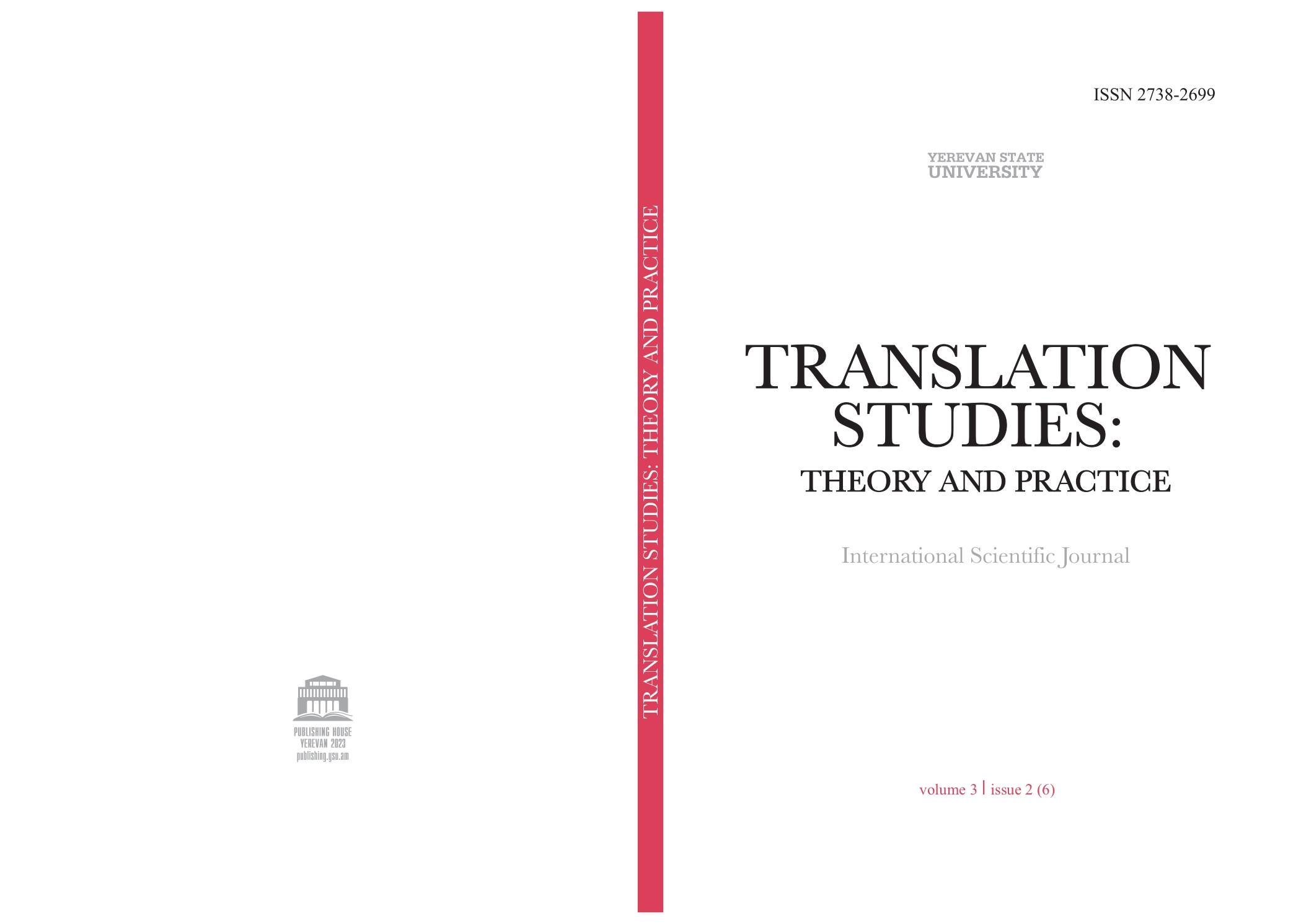Contextual Frames of Reference in the Translation of George Orwell’s Animal Farm to Kiswahili
DOI:
https://doi.org/10.46991/TSTP/2023.3.2.029Keywords:
contextual frames, Kiswahili, translation shifts, cognitive environment, cultureAbstract
This paper seeks to establish the cognitive contextual frames of references (CFRs) in the translation of George Orwell’s Animal Farm from English to Kiswahili. The source text “Animal Farm” and the target text "Shamba la Wanyama" were used to gather the study's data. The paper offers insights on how CFRs can be employed in literary translation to domesticate the target text so that it is relevant to the target language audience. Specific word and phrase meanings were deduced from sentences of both the source text and the target text. The analyzed data revealed that the translator used organizational category shifts, textual category shifts, communicational category shifts, and socio-cultural category shifts. The most common CFRs in the Kiswahili translation of Animal Farm were found to be communicational category shifts. The target text is made relevant to the audience through such manipulations.
References
Baker, Mona. 1992. In Other Words a Coursebook on Translation Studies. London: Routledge.
Bell, Emma, and Bryman, Alan. 2007. "The Ethics of Management Research: An Exploratory Content Analysis." British Journal of Management, 18(1): 63-77.
Berman, Sidney. 2014. "Cognition and Context in Translation Analysis: Contextual Frames of Reference in Bible Translation." Journal for Contextual Hermeneutics in Southern Africa, 113(1): 1-12.
Catford, John Cunnison. 1965. A Linguistic Theory of Translation. New York: Oxford University Press.
Croft, William; Cruse D. Alan. 2004. "Frames, Domains, Spaces: The Organization of Conceptual Structure." Cognitive Linguistics, 7-39.
Evans, Vyvyan; Green, Melanie. 2018. Cognitive Linguistics: An Introduction. New York: Routledge.
Geeraerts, Dirk. 2006. "Cognitive Linguistics: Basic Readings." In A rough Guide to Cognitive Linguistics, 1-28, edited by M. D. Gruyter. Berlin and New York: Mouton de Gruyter.
Gordon, Ian. 2013. Controlled Breeding in Farm Animals. Elsevier.
Gutt, Ernst-August. 2000. "Translation as Interlingual Interpretive Use." The Translation Studies Reader, 376-396. New York: Routledge.
Khachula, Anet Aromo; Mandilah, Lucy; Mudogo, Bernard Angatia. 2021. "Levels of Equivalence in Interpreter-Mediated Sermons from English into Luhya Varieties." International Journal of English Language Studies, 3(5): 26-30.
López, Ana Maria Rojo. 2002. "Applying Frame Semantics to Translation: A Practical Example." Meta Journal des traducteurs, 47(3): 312-350.
Makutoane, T.J., Naudé, J.A. 2009. "Colonial Interference in the Translations of the Bible into Southern Sotho." Acta Theologica, 2009(sup-2): 79-94.
Matthews, Roger; Briggs, Daniel. 2008. "Lost in Translation: Interpreting and Implementing Anti-Social Behaviour Policies." In ASBO Nation, 95-108. Policy Press. DOI: https://doi.org/10.56687/9781847423511-006
Mazrui, Alamin. 2017. "Cold War Translation in the East African Context: Reception and Responses" In Translation Studies Beyond the Post Colony, edited by Kobus Marais and Ilse Feinauer, 73-93. UK: Cambridge Scholars Publishing.
Mudogo, B. A. 2018. "Baker’s Strategies in Translation: A Lexico-Semantic Analysis of Four Luhya Dialects: Lukabras, Lwisukha, Luwanga and Lukhayo in Informative Text." The African Journal of Education and Social Sciences (AJESS). Vol 3: 71-85.
Nida, Eugene A. 1975. Componential Analysis of Meaning. An Introduction to Semantic Structures. The Hague: Mouton.
Orwell, George. 2021. Animal Farm and 1984. Fusion Books.
Orwell, George. 1967. Shamba la Wanyama. Translated by Fortunatus F. Kawegere. Nairobi: East
African Publishing House.
Sperber, Dan, and Wilson, Deirdre. 2002. "Pragmatics, Modularity and Mind‐Reading." Mind & Language, 17(1‐2): 3-23. DOI: https://doi.org/10.1111/-1468-0017.00186
Toury, Gideon. 1995. Descriptive Translation Studies and Beyond. Amsterdam/Philadelphia: John Benjamins Publishing Company.
Wendland, R. Ernst. 2014. Contextual Frames of Reference in Translation. A Coursebook for Bible Translators and Teachers. Manchester, UK & Kinderhook: St.Jerome Publishing.
Wendland, R. Ernst. 2008. Finding and Translating the Oral-Aural Elements in Written
Language: The Case of the New Testament Epistles. Lewiston-Queenston-Lampeter: The Edwin Mellen Press.
Wendland, R. Ernst. 2010. "Framing the Frames: A Theoritical Framework for the Cognitive Notion of 'Frames of Reference'." Journal of Translation, 6(1): 27-50.
Wendland, R. Ernst, and Wilt, Timothy. (Eds.). (2008). Scripture Frames and Framing: A Workbook for Bible Translators. AFRICAN SUN MeDIA.
Downloads
Published
How to Cite
Issue
Section
License
Copyright (c) 2023 Jill Laventor Itieba, Benard Mudogo, David Barasa

This work is licensed under a Creative Commons Attribution-NonCommercial 4.0 International License.










